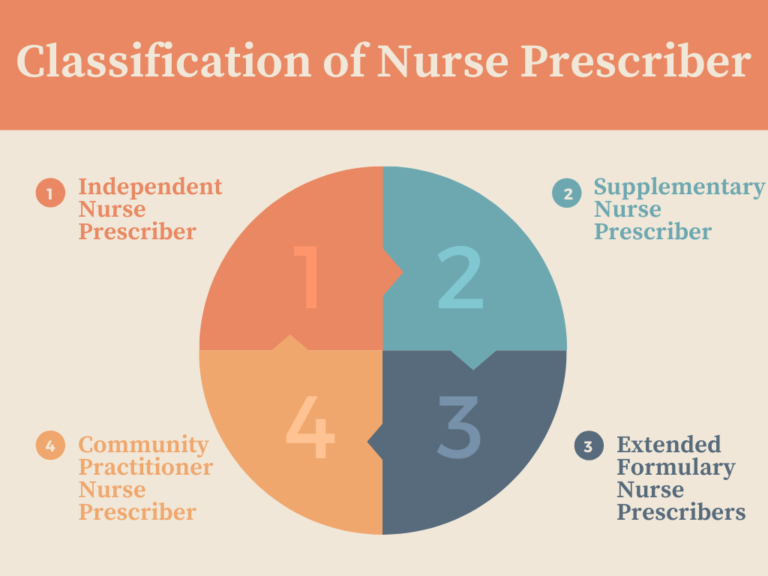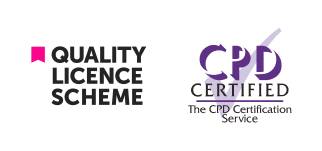

If you want to become a nurse prescriber, you need to be qualified and meet the new standard of nurse proficiencies. And becoming qualified means preparing yourself for a specific role by getting certification. In case you’re wondering why is it important to enrol in a nurse prescribing course, you’ll find out soon enough.
Table of Contents
What is Nurse Prescribing?
Nurse prescription is a natural outgrowth of many nurses’ practice, which eliminates the need for a doctor’s signature from the process. Thus, nursing prescriptions strengthen the nursing practice while also benefiting patients by simplifying access to healthcare professionals and, perhaps, medications and assuring continuity of treatment.
Who is a Nurse Prescriber?
The term “nurse prescriber” refers to a person in charge of assessing patients who have undiagnosed or diagnosed diseases and making prescribing decisions to manage the patient’s clinical situation without the supervision of a registered doctor.
An authorised nurse prescriber can deliver and prescribe prescription-only medicines to patients while working under the primary supervision of a doctor, but without the necessity for a doctor’s prescription. Because of this, a nurse prescriber can distribute medications to groups of patients rather than having to write separate prescriptions for each individual.
The nurse prescribing course is suitable for anyone who wants to speed up their career by acquiring valuable skills and knowledge. In addition, those with little or no knowledge of nurse prescribing principles and those who are new to the field can use it to test their abilities.
Classification of Nurse Prescriber
Nurse prescribing’s primary goal is to enhance patient’s access to medicines and to make better use of nurses’ abilities. Nurse prescribing could also help doctors focus on more complex situations by reducing their workload.
Nurses who have completed a certified nurse prescribing course and registered their credentials with their regulating authority have permission to prescribe. There are different kinds of nurse prescribers. They are given below –

1. Independent Nurse Prescriber
Registered independent prescribers are nurses who have completed an Independent Nurse Prescribing Course, and the state approves them. They can prescribe any prescription, as long as it falls within the boundaries of their professional training and experience.
Thus, the nurse prescriber is responsible for clinical assessment, diagnosis, clinical management and prescribing medications.
2. Supplementary Nurse Prescriber
Supplementary prescribing is a collaborative effort between a qualified doctor who makes the diagnosis and initiates treatment, a nurse who monitors the patient and prescribes additional medication, and the patient who agrees to the arrangement. Supplementary prescribers, unlike autonomous nurse prescribers, are not bound by any legal restrictions in terms of the clinical problems that they can treat.
Furthermore, there is no set formulary or list of medications that a supplementary nurse prescriber can prescribe as a supplement. In this case, however, there is a single exception: controlled substances. Supplementary nurse prescribing is beneficial when handling patients with conditions like asthma, diabetes, heart disease, and many long-term medical problems and complicated conditions such as mental illness.
3. Community Practitioner Nurse Prescriber
The term ‘community practitioner nurse prescriber’ refers to nurses who have earned a degree in community practitioner nurse prescribing. They can prescribe medications from the Nurse Prescriber’s Formulary for Community Practitioners. It was formerly known as The Nurse Prescriber’s Formulary for District Nurses and Health Visitors.
The majority of these types of nurses are district nurses, public health nurses, community nurses and school nurses. Community practitioner nurse prescribers can only provide a limited amount of pharmaceuticals and medications available only by prescription.
4. Extended Formulary Nurse Prescribers
Extended formulary nurse prescribers have access to a broader range of medications. These nurses have been trained to write prescriptions using the Nurse Prescribers’ Extended Formulary. Nurse prescribers that work in the extended formulary can provide care for mild diseases, minor injuries, health promotion, and palliative care.
Why is it Important to Enrol in Nurse Prescribing Course?
Nurse prescribers are responsible for much more than just patient care. They’ve always been at the forefront of advancements in healthcare and public health policy. When it comes to health and illness, nurse prescribers can help families be healthier by assisting them in understanding the emotional, physical, mental, and cultural experiences that they are going through at the time.
In addition, nurse prescribers assist people and their families in coping with disease, dealing with it, and, if necessary, living with it so that they can continue to live their lives as normally as they possibly can. When it comes to being a good nurse prescriber, the nurse prescribing course is really crucial. Here are the reasons of the importance for nurse prescribing course-
- To advocacy for patients
- To assist with the administration of medications and treatments
- To monitor patient health
- To keep track of medical history and symptoms, and vital signs of the patient
- To plan patient care in collaboration with teams
- To carry out diagnostic procedures
- To educate patients on how to manage their conditions
Nurse Prescribing Course
The Nurse Prescribing Course is designed to make the learning process easy and understandable for you. This Nurse Prescribing Course is ideal for aspiring Nurse who wishes to gain the relevant skills and knowledge to fast track their career. Those who have little or no knowledge of the principles of Nurse Prescribing, or those who are new to the field and want to test their skills and knowledge should take this Nurse Prescribing Course. You can take this course without any strict, formal entry requirements

What Qualifications Does a Nurse Prescriber Need?
Regardless of anything, at first, you’ll need a nursing degree to become a nurse prescriber. In addition, you must have a degree in nurse prescribing from an institution or an equivalent qualification. Otherwise, you can demonstrate equivalent academic aptitude and professional experience in the case of non-graduates.
For more information, check out these standards of proficiency for registered nurses. It will give you further information on The Nursing and Midwifery Council’s new standards of proficiency. These proficiency standards represent the skills, knowledge, and competency that all nurses must demonstrate.
What Skills Does a Nurse Prescriber Need?
You’ll need to have the necessary skills in clinical and health assessment, diagnostics, care management to become a nurse prescriber.

You’ll also should be proficient in planning and evaluation of care. Usually, a registered nurse prescriber’s tasks and roles include assisting with patient care, disease and sickness prevention, and illness diagnosis and treatment. For this, a nurse prescriber needs to obtain some skills. Some of them are given below –
1. Care Planning
Nurse prescribers should show care, especially when assessing a patient’s health and go out of their way to meet a patient’s requirements. Besides, they should remain aware of their care planning for the patients and make sure people under their care understand the treatments, medications and medical options accessible to them.
This regulation is crucial for the nurse prescribers who work independently, as they do not operate under the supervision of a registered doctor who might spot a mistake.
2. Commitment
The well-being of a nurse practitioner’s patients is an essential indicator of his or her commitment. Patients who maintain their health are a positive reflection on the nurse prescriber. It is also necessary for the nurse prescriber to be aware of how the patients’ families cope with their illness.
The ability of a patient to recover as quickly as possible is frequently dependent on the ability of both the patient and the patient’s family to maintain a positive outlook – something that a skilled nurse prescriber can assist with.
3. Communication
A good nurse prescriber helps a patient feel understood while attending to their and their family’s needs. It’s critical to create ways for patients to get around language hurdles and absorb complex medical information. You’ll have to translate some complicated medical words into simple terms.
People mistakenly believe that communicating is only entails talking. However, it also entails being a good listener. Patients will have more faith in you if they think they can speak with you.
4. Compassion
A nurse prescriber should treat patients who are experiencing physical or emotional distress, or both, with compassion and understanding. Patients are more likely to be candid if they believe that their nurse prescribers are genuinely concerned about their health. When patients are more open, nurse prescribers can provide the best care.
5. Competence
On a regular basis, all nurse prescribers should strive to further their knowledge and abilities. They can accomplish this by enrolling in appropriate programs and attending relevant seminars. Nurse prescribers must also demonstrate their competency by recertifying regularly to maintain their licences.
6. Courage
The mindset of a patient can have a significant impact on his or her overall health. As a result, a nurse prescriber should endeavour to keep both a good attitude and emotional stability. But, of course, it will only be possible if the nurse prescriber has the courage enough to care for the patients and give them a positive vibe.
Conclusion
Patients receive primary and extraordinary care from nurse practitioners, who work independently or collaborate with physicians to meet their needs.
The primary responsibilities of a nurse prescriber include assessing patients and determining the most effective strategies to improve their health or manage chronic diseases. The vast majority of nurse prescribers specialise in a particular field, such as geriatrics, paediatrics or psychiatric health. You can easily enrol In this course about nurse prescribing and learn more about it.
Popular Posts









- All Courses
- IT & Software98
- Microsoft Office66
- Nonprofit & Charity15
- Health & Safety87
- Life Style72
- DIY43
- On Demand Courses38
- Quality Licence Scheme Endorsed113
- Health and Fitness77
- Health and Care159
- Admin39
- Digital Marketing48
- Psychology & Counselling83
- Teaching and Education99
- Design75
- Management129
- Beauty42
- Accounting62
- Employability197
- Human Resource42
- Personal Development131
- Marketing59
- Business153
- Photography38
- Language26








